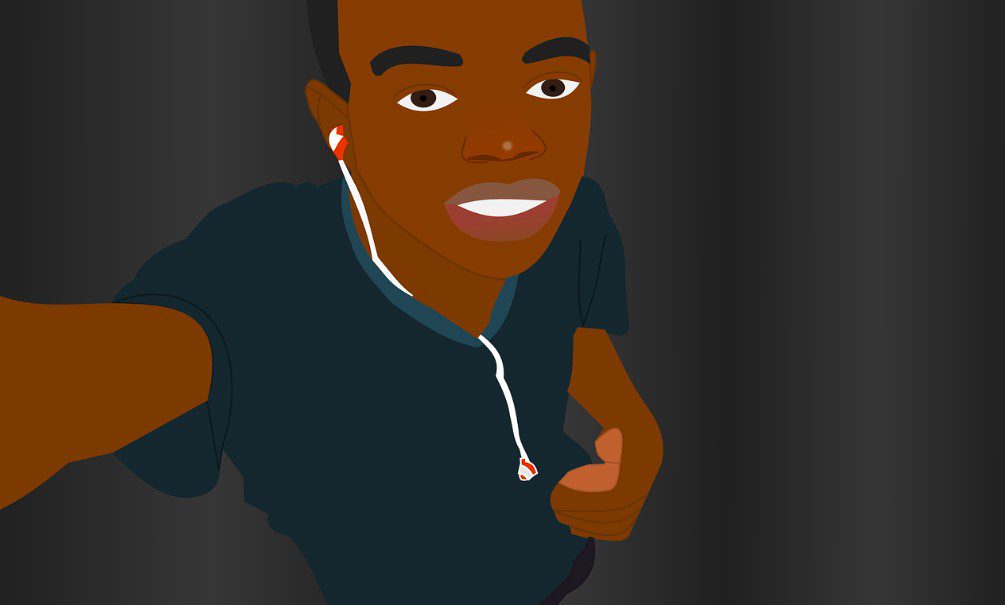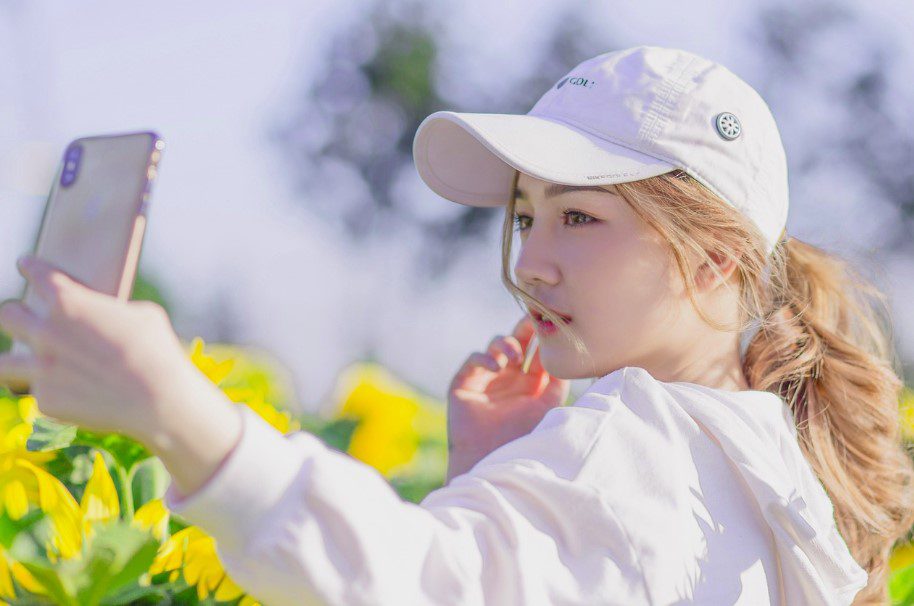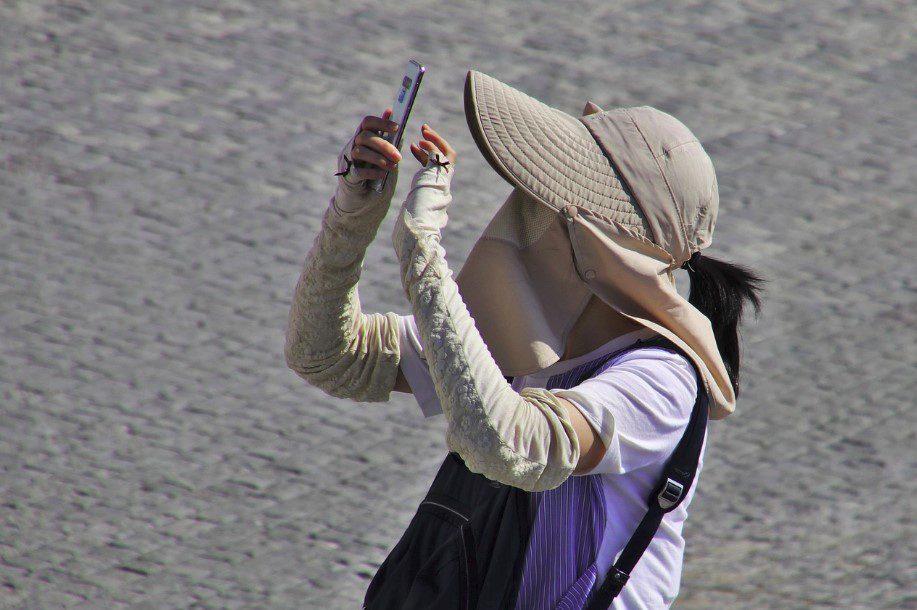To understand the absurd effects of the selfie culture in the 21st century, one needs to read the story of Danny Bowman, a 19-year-old young man who tried to kill himself because he failed to take the perfect selfie.
Danny dedicated up to 10 hours taking pictures, capturing as many as 200 images. However, he couldn’t capture that one photo that would amaze the world! His follies are indicative of our obsession with technology and how it has turned many of us into a generation of idiots!
While selfie culture may seem like a fun and harmless activity, it can have negative effects on child development.
viewing selfies online appears to have a negative impact on adolescents’ well-being and body confidence, at least in the short term in experimental contexts.
NIH
In addition,
social comparison has been identified in this emerging body of research as a potential mechanism which links selfie engagement to well-being and body confidence.
What is Selfie and Selfie Culture Anyway?
According to Wikipedia
A selfie is a self-portrait-photograph, typically taken with a digital camera or smartphone, which may be held in the hand or supported by a selfie stick.
Selfie culture, meanwhile, pertains to the trend of capturing and sharing self-portraits. These self-portraits, commonly referred to as “selfies,” are shared on social media platforms like Instagram, Facebook, and Snapchat.
It has been born out of the constant need for validation and the pressure to present a perfect image online. The culture has become increasingly popular among people of all ages. It is also not uncommon to see children as young as three years old taking pictures of themselves.
While selfies may seem like a fun and harmless activity, it can have negative effects on self-esteem, body image, and mental health, especially among children and teenagers.
The Ills of Selfie Culture:

Selfie culture has become an integral part of our lives, especially in this age of social media.
While there are benefits to preserving personal moments and memories, it’s important to note that excessive indulgence can bring about consequences. These consequences can encompass issues like low self-esteem, narcissism, and even addiction.
1. The Impact on Self-Esteem and Body Image
The selfie culture can have a significant impact on a child’s self-esteem and body image. Children who take selfies and share them on social media platforms have a primary goal: seeking validation from others. This validation is often pursued, particularly through receiving likes and comments.
When they don’t receive enough likes or positive comments, it can affect their self-esteem and confidence levels negatively. The constant need for validation and the pressure to present a perfect image can also lead to body image issues and eating disorders in children.
This goes hand in hand with children comparing themselves with other:
Self-esteem often takes a hit when you start comparing yourself too much to other people, which is something social media seems to be made for.
CHILD MIND INSTITUTE
Selfies provide a platform for children to compare their physical appearance with others, which can lead to a constant evaluation of their own attractiveness. If they perceive themselves as falling short in comparison, it may further diminish their self-esteem.
2. Cyberbullying and Online Harassment
The rise of selfie culture has also led to an increase in cyberbullying and online harassment of children. When they share their selfies online, they open themselves up to negative comments, ridicule, and even harassment from others.
Selfies often invite comparisons and judgments about physical appearance, leading to body shaming and derogatory comments. Cyberbullies may target individuals based on their selfies, criticizing their looks, weight, or other physical attributes, which can severely impact the victim’s self-esteem.
Social media platforms provide a wide audience for cyberbullies to spread negative comments or engage in public shaming related to selfies. The viral nature of such platforms can lead to the rapid dissemination of hurtful content, further damaging the victim’s self-image and potentially escalating the cyberbullying
The anonymity of the internet allows bullies to target children with little fear of repercussions. Cyberbullying and online harassment can have severe effects on a child’s mental health and well-being, leading to depression, anxiety, and even suicide.
3. Social Isolation and Decreased Communication Skills
The selfie culture can also contribute to social isolation and decreased communication skills in children. Children who spend too much time taking selfies and posting them online may become addicted to their devices, leading to a lack of face-to-face communication skills.
When children become excessively preoccupied with capturing and sharing selfies, they may develop narcissistic tendencies, prioritizing self-image over genuine social interactions.
While selfies can offer a glimpse into one’s life, they often provide a superficial representation of personal experiences. Relying heavily on selfies for communication can result in shallow connections, as the focus becomes more about appearances rather than genuine emotional connections and deeper conversations.
Furthermore, the pressure to maintain a perfect online image can cause children to become socially isolated and withdrawn.
4. Distraction and Decreased Academic Performance
The constant need for validation and the pressure to maintain an online presence can lead to distraction and decreased academic performance in children.
Taking and editing selfies, as well as engaging with social media platforms to share and seek validation, can be time-consuming. Excessive involvement in these activities can detract from the time children should be dedicating to studying, completing assignments, and engaging in academic pursuits, ultimately impacting their academic performance.
Constant engagement with selfies and social media can also make it challenging for children to focus on academic tasks. The constant urge to check notifications, respond to comments, or take more selfies can lead to a divided attention span and reduced concentration, hindering their ability to engage fully in their studies.
Additionally, the constant pressure to maintain an online presence can lead to a lack of sleep and poor time management skills. This will negatively affect academic performance at school.
5. Impact on Parent-Child Relationships
The selfie culture can also have an impact on parent-child relationships. Children who are addicted to taking selfies and posting them online may prioritize their online presence over their relationship with parents.
Excessive engagement with selfies and social media can lead to conflicts between parents and children regarding screen time limits, privacy concerns, or appropriate online behavior.
Child selfies shared on social media platforms may raise privacy concerns for parents. Parents may worry about the potential consequences of their child sharing personal information or inappropriate content through selfies, which can lead to conflicts and strain the parent-child relationship.
Selfies can contribute to a distorted perception of reality, especially when children become overly focused on portraying an idealized version of themselves online. This can create a disconnection between the child’s online persona and their true self, making it challenging for parents to understand and connect with their child authentically.
This can lead to a breakdown in communication and trust between them, negatively affecting their relationship in the long term.
How to mitigate selfie addiction and culture in children

Controlling selfie culture refers to taking conscious steps to limit or manage the impact of the widespread phenomenon of taking and sharing selfies.
In conclusion, the aim of overseeing selfie culture is to prevent it from developing into an unhealthy obsession. This is to ensure it doesn’t have adverse effects on individuals’ mental health and overall well-being.
Here are some tips:
- Educate them about the dangers of excessive selfie-taking, such as low self-esteem, addiction, and online harassment.
- Encourage them to take breaks from their phones and spend time doing other activities, such as playing sports or spending time with friends and family.
- Talk to them about the importance of privacy and the risks associated with sharing personal information online.
- Encourage them to take photos of other things besides themselves, such as nature, architecture, or pets.
- Set limits on the amount of time they can spend on their phones or taking selfies.
- Practice self-love: Instead of relying on social media validation for their self-worth, they should focus on loving and accepting who they are. There is a need to practice self-care and engage in activities that make them feel good about themselves.
- Tell them to avoid excessive editing: While it can be tempting to edit selfies to perfection, it can also be harmful to their self-esteem. They should avoid using excessive filters or editing tools that alter appearances. They must love and embrace their natural beauty and uniqueness.
- They must learn to be present in the moment: Instead of children constantly looking at their smartphones and taking selfies, they should try to ‘be‘ present in the moment and enjoy the experience of life. They need to engage with the surroundings and the people around them.
- Lead by example and model healthy phone and social media habits for your children.
In Conclusion
In conclusion, the selfie culture can definitely have lasting effects on child development today.
Keep in mind, fostering open and honest dialogues with your children regarding their engagement in selfie culture is crucial. Also, guide them in achieving a well-balanced integration of technology alongside other aspects of their lives.





Leave a Reply